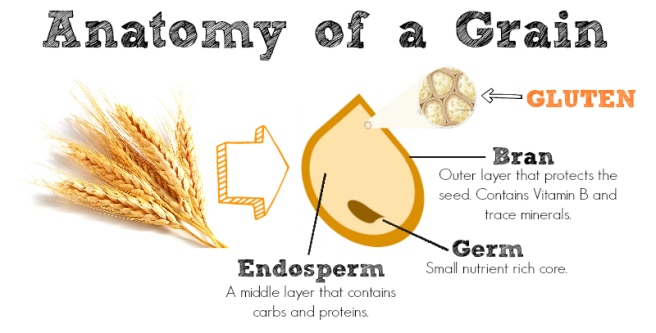This is getting to be more and more popular.
Fortunately, I have no problem with gluten, so I've never had to deal with this issue.
Gluten is a general name for the proteins found in wheat (wheatberries, durum, emmer, semolina, spelt, farina, farro, graham, KAMUT® khorasan wheat and einkorn), rye, barley and triticale – a cross between wheat and rye. Gluten helps foods maintain their shape, acting as a glue that holds food together. Gluten can be found in many types of foods, even ones that would not be expected.
Here is some information on the subject..
https://paleoleap.com/11-ways-gluten-and-wheat-can-damage-your-health/
More information I found online....
You don't need to have full-blown celiac disease to have adverse reactions to gluten.
There is another disorder called gluten sensitivity (or gluten intolerance), which is much more common.
Although there is no clear definition of gluten sensitivity, it basically means having some sort of adverse reaction to gluten and an improvement in symptoms on a gluten-free diet.
If you have adverse reactions to gluten, but celiac disease is ruled out, then it is called non-celiac gluten sensitivity.
In non-celiac gluten sensitivity, there is no attack on the body's own tissues. However, many of the symptoms are similar to those in celiac disease, including bloating, stomach pain, fatigue, diarrhea, as well as pain in the bones and joints.
Unfortunately... because there is no clear way of diagnosing gluten sensitivity, reliable numbers on how common it is are impossible to find.
There are two sources showing that up to 6-8% people may have gluten sensitivity, based on anti-gliadin antibodies found in the blood (10, 11).
However, one gastroenterologist found that 11% of people had antibodies against gluten in their blood and 29% of people had antibodies against it in stool samples (12).
About 40% of people carry the HLA-DQ2 and HLA-DQ8 genes, which make people susceptible to gluten sensitivity (13).
Given that there is no clear definition of gluten sensitivity, or a good way to diagnose it, the only true way of knowing is by eliminating gluten temporarily from your diet, then reintroducing it to see if you have symptoms.

Fortunately, I have no problem with gluten, so I've never had to deal with this issue.
Gluten is a general name for the proteins found in wheat (wheatberries, durum, emmer, semolina, spelt, farina, farro, graham, KAMUT® khorasan wheat and einkorn), rye, barley and triticale – a cross between wheat and rye. Gluten helps foods maintain their shape, acting as a glue that holds food together. Gluten can be found in many types of foods, even ones that would not be expected.
Here is some information on the subject..
https://paleoleap.com/11-ways-gluten-and-wheat-can-damage-your-health/
More information I found online....
You don't need to have full-blown celiac disease to have adverse reactions to gluten.
There is another disorder called gluten sensitivity (or gluten intolerance), which is much more common.
Although there is no clear definition of gluten sensitivity, it basically means having some sort of adverse reaction to gluten and an improvement in symptoms on a gluten-free diet.
If you have adverse reactions to gluten, but celiac disease is ruled out, then it is called non-celiac gluten sensitivity.
In non-celiac gluten sensitivity, there is no attack on the body's own tissues. However, many of the symptoms are similar to those in celiac disease, including bloating, stomach pain, fatigue, diarrhea, as well as pain in the bones and joints.
Unfortunately... because there is no clear way of diagnosing gluten sensitivity, reliable numbers on how common it is are impossible to find.
There are two sources showing that up to 6-8% people may have gluten sensitivity, based on anti-gliadin antibodies found in the blood (10, 11).
However, one gastroenterologist found that 11% of people had antibodies against gluten in their blood and 29% of people had antibodies against it in stool samples (12).
About 40% of people carry the HLA-DQ2 and HLA-DQ8 genes, which make people susceptible to gluten sensitivity (13).
Given that there is no clear definition of gluten sensitivity, or a good way to diagnose it, the only true way of knowing is by eliminating gluten temporarily from your diet, then reintroducing it to see if you have symptoms.

